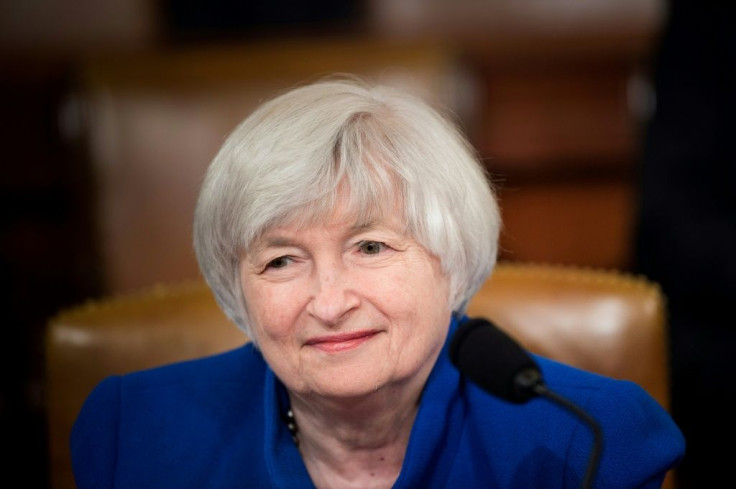Markets Surge After Yellen Backs Stimulus To Prevent 'Lifelong Toll' On Citizens
Stocks pushed upwards Friday following statements from Treasury Secretary Janet Yellen pushing for greater stimulus efforts. Yellen’s support comes as Democrats finalize plans to push their stimulus through the House, aiming to blunt the economic effects of the COVID-19 pandemic.
The remarks were made on CNBC’s “Closing Bell” with Sara Eisen.
“We think it’s very important to have a big package [that] addresses the pain this has caused,” Yellen said. “The price of doing too little is much higher than the price of doing something big. We think that the benefits will far outweigh the costs in the longer run.”
Markets surged up at the news, with the S&P 500 and the Dow Jones Industrial Average rising around 0.5%. The Nasdaq Composite performed even better, adding 0.8%.
Even these gains, however, weren’t quite enough to put the Nasdaq and S&P in the black for this week. The Dow managed a slight increase of 0.25%.
Yellen’s talk of stimulus isn't universally acclaimed: she pushed back against critics who worry stimulating the economy too much could lead to inflation.
“Inflation has been very low for over a decade, and you know it’s a risk, but it’s a risk that the Federal Reserve and others have tools to address,” she told CNBC. “The greater risk is of scarring the people, having this pandemic take a permanent lifelong toll on their lives and livelihoods.”

This comes a day after Nancy Pelosi finally revealed a timeline for Democrats’ sweeping stimulus bill, which aims to make it through the House next week and pass into law before federal benefits expire on March 14.
Liberals intend to leave behind Republicans to push for a $15 minimum wage and funding for regional governments, using budgetary reconciliation to avoid a Senate filibuster and lower the passage threshold from 60 votes to 50.
© Copyright IBTimes 2025. All rights reserved.





















